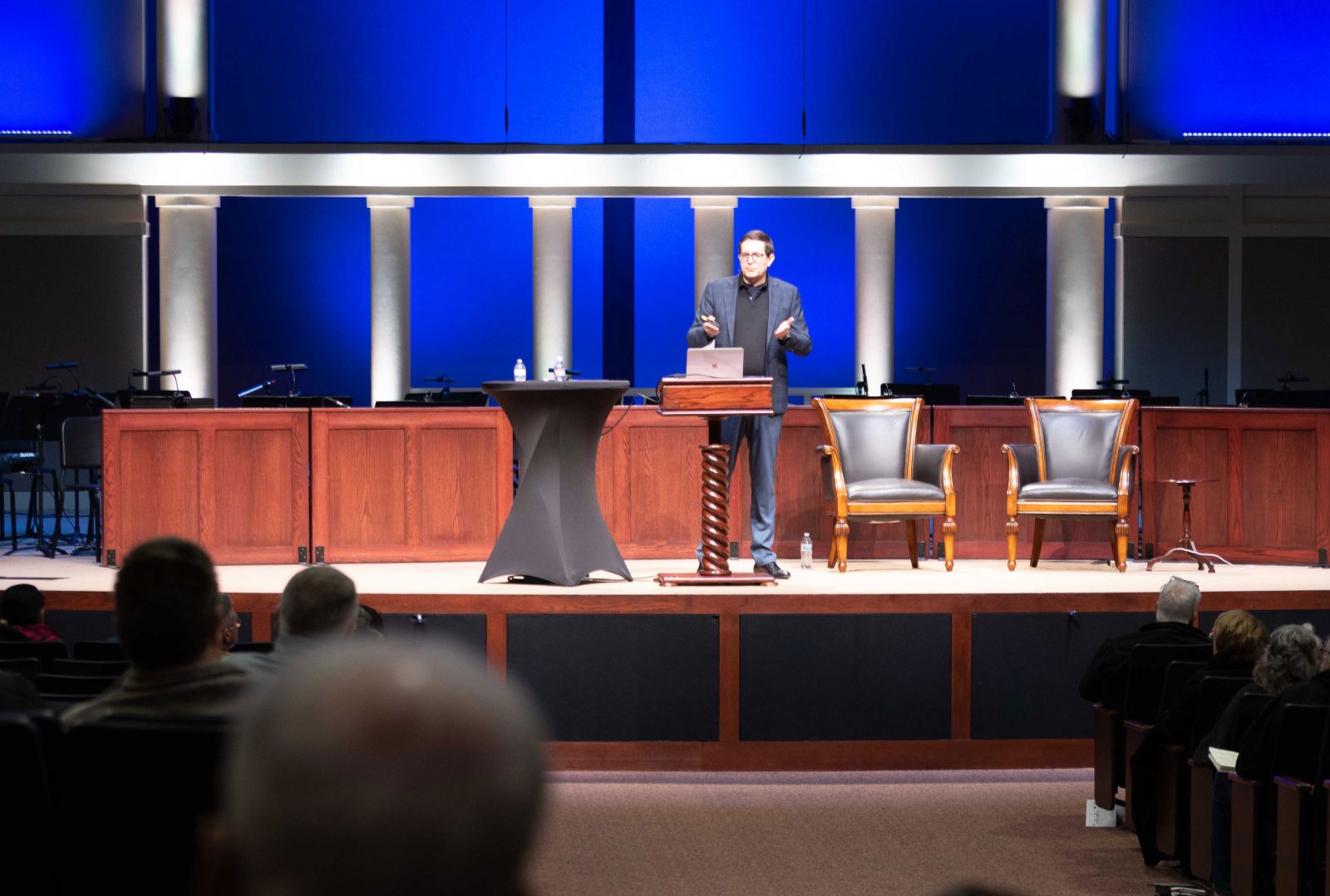


A Cosmos Charged With Meaning and Purpose

How Modern Physics Reveals Purpose in the Universe

Is a New Design-Based Paradigm of Biology Emerging?

Casey Luskin Talks Intelligent Design and Cultural Renewal on the Dr. Jeff Show

Michael Behe: Evolution, Devolution, Design
Today’s ID the Future features three recent Evolution News essays by Lehigh University biology professor and Darwin Devolves author Michael Behe, as read by host Andrew McDiarmid. In the first, nothing shows the feebleness of Darwinism quite so much as breathless stories about new results that turn out to be much ado about nothing. In this case, it’s some recent speculation about the rise of “lactase persistence” in many human adults. Then it’s onto malaria, much beloved of evolutionists, not for its lethality but as a demonstration of evolution in action. But Behe dissects the latest news story on the topic to show that the touted malaria evolution is, once again, malaria gnawing off the proverbial leg to achieve a niche advantage—that is, mere devolution. It’s akin, Behe says, to the rise of tuskless elephants in Africa, where having the devolutionary mutation that leaves an elephant tuskless renders the creature of no interest to elephant-slaying ivory poachers, thereby improving its chances of survival. In the third essay Behe makes a case for his favorite way of concisely describing what we detect when we detect intelligent design in biology. For a great collection of Dr. Behe’s essays, get a copy of his newest book, A Mousetrap for Darwin: Michael Behe Answers His Critics.

Brian Miller: The Surprising Relevance of Engineering in Biology
Today’s ID the Future brings listeners physicist and engineer Brian Miller’s recent lecture at the Dallas Conference on Science and Faith, “The Surprising Relevance of Engineering in Biology.” Miller rebuts several popular arguments for evolution based on claims of poor design in living systems, everything from the “backward wiring” of the vertebrate eye to whales, wrists, ankles, and “junk DNA.” But the main emphasis of this discussion is the exciting sea change in biology in which numerous breakthroughs are occurring by scientists who are treating living systems and subsystems as if they are optimally engineered systems. Some in this movement reject intelligent design for ideological reasons. Others embrace it. But all systems biologists treat these systems as if they are masterfully engineered systems, and that perspective is rapidly accelerating progress in experimental biology. At the forefront of this work is the Conference on Engineering in Living Systems (CELS). Miller provides an exciting sneak peek at some of the cutting edge research from members of this group.

William Dembski: Why Intelligent Design Matters
On this ID the Future intelligent design pioneer William Dembski unpacks one of his chapters in The Comprehensive Guide to Science and Faith: Exploring the Ultimate Questions about Life and the Cosmos, which Dembski co-edited with Joseph Holden and episode host Casey Luskin. The chapter, “Why Intelligent Design Matters,” focuses on ID’s cultural implications. Dembski notes that atheists use mindless evolution to provide a God-free explanation for life and the universe. Intelligent design checks that move, showing that blind material processes couldn’t have created many things in nature, much less the cosmos itself. Intelligent design is the better explanation. What about the idea that an alien created, say, the first life on Earth (intelligent design without the need for God)? Dembski says that idea–one that some atheists have suggested as a fallback explanation—is a poor explanatory substitute for an immaterial intelligent designer.

Hank Hanegraaff and Animal Algorithms Author Eric Cassell, Pt. 2
On today’s ID the Future, radio host Hank Hanegraaff continues his conversation with Animal Algorithms author Eric Cassell. Here they look at more insects with strikingly sophisticated innate behavior, suggesting intricate algorithms encoded into their brains from birth, all of which cannot be effectively explained by reference to Darwinian evolution. Cassell and Hanegraaff touch on wasp martial arts; termite altruism and termite architectural skills, including a cooling system that has inspired a human design; interdependent social caste systems that enhance fitness; and spiderweb architecture and the extraordinary properties of spider silk, including the different kinds of silk and the spider’s ability to employ different types precisely tailored for different needs. Cassell looks at evolutionary explanations for these innate abilities that appeal to the ideas of convergent evolution and selection pressure, and he shows why these don’t get us very far. He suggests the path forward is to set aside the dogmatic insistence on restricting ourselves to only naturalistic explanations and instead to consider the possibility of intelligent design. Hanegraaff and Cassell wrap up their discussion by taking on some common objections against the theory of intelligent design. The interview is presented here by permission of Hank Hanegraaff. Find the original at Hank Unplugged. Pick up your copy of Cassell’s book here.

Hank Hanegraaff Interviews Animal Algorithms Author Eric Cassell, Pt. 1
On this ID the Future radio host Hank Hanegraaff interviews Animal Algorithms author Eric Cassell about insects and other small-brained animals with innate behaviors of astonishing sophistication — desert ants, leafcutter ants, honey bees, spiders, monarch butterflies, and many more. These appear to be hard-wired from birth with complex algorithms coded into their neural networks, and some of the algorithms seem to involve complex mathematics. Also mysterious: many of these innate abilities are do or die. So how could they have blindly evolved one small Darwinian step at a time? Also, how would genetic mutations generate the ability to make navigational calculations (as in the case of some birds) that for humans require spherical geometry? Listen in to learn more about this and other wonders of the animal world. Pick up your copy of Cassell’s book here. (The interview is presented here by permission of Hank Hanegraaff.)